Benefits Of Morning Walk: 22 Science-Backed Health Gains
Starting your day off with a stroll can be good for your mental and physical well-being.
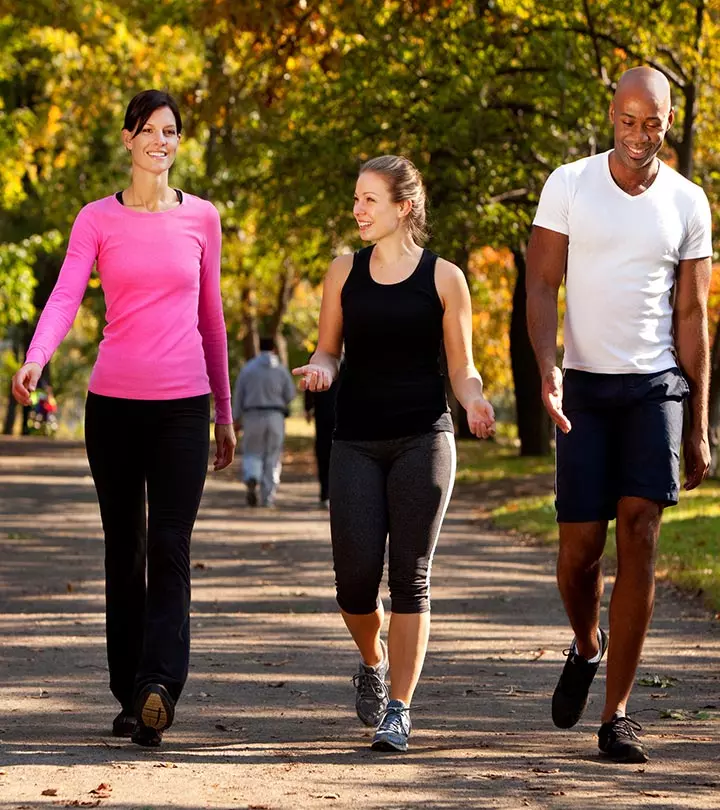
Image: ShutterStock
Walking is great for improving your health. There are many benefits of a morning walk, especially for those dealing with lifestyle-related diseases like obesity, heart disease, and diabetes (1). Moreover, walking is low-impact cardio that maintains joint health and is suitable for people of all age groups. A 30-minute morning walk results in improved mood, improved metabolism, better immune system function, stress reduction, increases blood circulation, assists in weight management, and gives you an energy boost for the rest of the day. All you need is a pair of walking shoes to start walking in the morning. Read on to learn about the science-backed benefits of a morning walk.

 Workout Blueprint: Morning Walk
Workout Blueprint: Morning Walk- Frequency: Daily
- Benefits: Aids in weight loss, regulates cholesterol levels, and improves brain function.
- Equipment Needed: Fitbit and walking shoes.
- Space Required: Large area
- Assistance Required: No
- Who Should Avoid: Anyone with diabetes and heart issues should avoid early morning walks during winter.
In This Article
22 Morning Walk Health Benefits
Lace up those sneakers and get ready to learn about the amazing benefits of walking. Keep reading:
1. Lowers The Risk Of Diabetes
Diabetes is one of the most predominant lifestyle-related diseases these days. But you can tame this metabolic disorder if you walk in the mornings.
According to research, a 30-minute morning walk can help improve blood sugar control as well as aid the management of insulin in Type II diabetes (2). It allows the cells in the muscles to use up more glucose, helps burn body fats that are not needed, and also aids in improving the Body Mass Index (BMI). This benefits diabetics immensely.
2. Good For Your Heart

If you have heart problems, it might not be a good idea to run. But you can walk! The American Heart Association says that brisk walking can help reduce the risk of heart disease and stroke (3).
Studies have shown that walking every morning for about 30 minutes can help maintain cardiovascular health and lower blood pressure. Making morning walks a part of your daily routine can strengthen the heart and control blood pressure (4). Morning walks can also lower triglyceridei The primary component of animal and plant fat. It is present in the blood and is stored in the body as an energy reserve. levels and prevent hypertensioni High blood pressure; a reading of 140/90 or higher suggests that the blood is pushing too hard against the arterial walls. .
3. Aids Weight Loss
Experts say that you can lose weight healthily without changing your diet by walking every day, along with other moderate, vigorous exercises
(5). Obesity is a major cause of diseases caused due to a sedentary lifestyle. If you need to lose weight (or your doctor has suggested so), start walking.
Walking is easy on your heart, and you will work out without feeling exhausted. Nothing helps like a brisk walk for 30 to 40 minutes. It helps elevate the heart rate and burn calories that are essential for weight loss.
Researchers have also found that walking can aid weight loss in obese patients by reducing overall body fat and improving flexibility and muscle strength (6), (7).
4. Prevents Arthritis And Osteoporosis
Leading an inactive life has many negative effects on the body, including stiff joints. The stiffness of joints can further lead to the development of the symptoms of arthritisi Joint inflammation that produces pain and stiffness in one or more joints. It can worsen as you age. .
Recent studies suggest that moderate, vigorous physical activity, such as walking for five days or more in a week, can help relieve arthritis pain and stiffness and provide energy (8).
Moreover, women are prone to losing bone density and developing osteoporosisi A bone disorder that arises when its composition or structure alter or its mass and mineral density decline. . Walking exercises the joints gently and strengthens them, along with improving bone density (9).
5. Reduces The Risk Of Stroke
Brisk morning walks help in keeping the heart strong and healthy. According to research conducted by the University of South Carolina, walking briskly for half an hour five times a week helps in lowering the risk of strokes (10).
Additionally, it has been shown that brisk morning walks promote functional recovery for people who have had a stroke (11).
6. Controls Cholesterol Levels
The body needs a certain amount of cholesterol to maintain optimum health and build cell membranes. However, there is a greater risk of heart problems when there is an excessive amount of blood lipids, especially when they are in the form of LDL cholesterol.
At the same time, low amounts of HDL can also be harmful. Following an active lifestyle and including activities like walking in your regimen is an excellent way to make sure the levels of cholesterol in your body are regulated (12), (13).
7. Protects Against Atherosclerosis
Atherosclerosis is a condition that is caused by arteries that are blocked due to plaque or LDL cholesterol depositions on the arterial walls. The block occurs in the inner walls of arteries in organs such as the brain, kidneys, heart, and legs.
Blood flow is restricted, and the circulation of blood does not occur properly. Regular morning walks can protect you from this condition and make sure that blood flow and circulation are not restricted (14), (15). Daily morning walks help maintain circulatory system health.
8. May Relieve Depression
Depression affects about 264 million people (16). This mood disorder may often give rise to many other disorders in youngsters and adults. The good news is if you can just get up and go out for a stroll, you can slowly tame the demons in your head which helps improve your mental health. That’s because when you walk, the natural pain-killing endorphinsi A protein hormone released by the pituitary gland to reduce pain when the body or mind is under stress. flow properly throughout the body.
Patients with depression found that walking fast every day for 35 to 60 minutes showed a significant improvement in their condition (17). An article published in the Scientific American confirms that 200 minutes of walking per week can make you feel more energetic and positive (18).
9. May Help Reduce The Risk Of Cancer
According to experts, morning walks may help in keeping different types of cancers at bay. They claim that many people develop cancer due to dull or hectic lifestyles. Morning walks give you the exercise that you need, better immunity, and a breath of fresh air as well.
Various studies have confirmed that walking can help prevent ovarian, breast, kidney, and cervical cancers (19), (20), (21). In fact, walking can also improve sleep in cancer patients (22).
10. Enhances Brain Function
Did you know that regular exercise, such as walking, can help protect memory and improve thinking skills (23)? Morning walks do more than just rejuvenating the body. They have the same positive effect on the mind as well.
When you walk, the oxygen and blood supply to the brain is accelerated, and this, in turn, leads to an enhancement in mental alertness, cognitive function, and memory (24).
Moreover, walking helps increase brain volume and improves brain function in aged individuals (25). Take a regular walk every morning to keep your brain functioning properly at all times.
According to certain studies, women over the age of 65 who walk on a regular basis are less prone to memory degeneration that is age-related when compared to those who do not walk or walk less. Walking is a great way to keep age-related mental illnesses away. Regular walking and an active lifestyle lead to a reduced risk of chronic diseases. For example, with daily walking, the risk of vascular dementiai Issues with logic, memory, and other mental processes due to damage to the brain brought on by poor blood flow. can be brought down to 70% (26).
 Quick Tip
Quick Tip11. Tones The Body

Just shedding the fat is not enough if you want to look slim and toned. Walking is a great option to get a fabulously toned body without having to do strenuous exercises. A brisk morning walk can help in muscle tone improvement.
You can tone your legs, tummy, and other parts of your body. Walking daily can also define the muscles in your calves, buttocks, and quads. Forget joining a gym! Make morning walks your way to get a perfectly toned body.
12. Lowers Risk Of Miscarriages
Expectant mothers can hugely benefit from indulging in exercises like swimming and regular walks, especially in the morning (27). Erratic hormone levels cause changes in the body, which walking can help moderate.
Walking also helps prevent gestational diabetesi A form of diabetes that develops during pregnancy in those who never had the disease before. There are usually no symptoms in most cases. that is quite common among pregnant women. It also provides protection against uterine contractions, which often result in spontaneous abortion, an occurrence that is caused by hormonal changes in the body.
13. Boosts The Immune System
Walking improves blood circulation in the body. This has wonderful effects on the immune system. It also improves the supply of oxygen throughout the body. Walking for just 30 minutes a day strengthens the immune system and keeps you protected from various illnesses and serious diseases (28).
14. Reduces Fatigue
A brisk morning walk can make you feel rejuvenated and refreshed. It can also alleviate fatigue and boost your energy levels, making you feel energized throughout the day. Moreover, walking can also reduce fatigue experienced by cancer patients (29).
Walking every morning gives your body the energy that it needs to get through the day. It helps increase the circulation of blood and the supply of oxygen and keeps you active and alert all day.
Morning walks are a great way to keep stress away. Stress can have an adverse effect on your body, making you fall sick more easily and causing depression, anxiety, etc. Walking improves blood circulation to the brain and helps uplift the mood (30). A brisk morning walk can make you feel more relaxed and calm.
15. May Reduce The Risk Of Dementia And Alzheimer’s
According to researchers, walking on a regular basis can help in the prevention of Alzheimer’si A neurologic condition that causes brain shrinkage and cell death, leading to severe memory loss and confusion. and dementia. Taking regular walks can reduce the risk of this condition by up to 54%. This is a common problem among the elderly, and it is best to prevent it early (31), (32), (33). Hence, make morning walks a part of your daily routine.
16. Improves Lung Capacity
The oxidation reaction quotient in the cells of your body can be increased significantly with a walk. However, these reactions cause a high demand for oxygen supply that makes the lungs pump extra oxygen. This, in turn, helps the lungs improve their capacity and overall respiratory health.
To keep your lungs working properly and ensure their health, it is a great idea to start going for brisk walks for a good 20 minutes every morning (34).
17. May Make Your Skin Glow
Dermatologists suggest that any exercise that improves blood circulation gives your skin a healthy glow (35). And there is no better exercise than walking.
Regular walking may help delay the onset of the signs of aging, such as fine lines and wrinkles. Proper blood circulation also prevents pimples, acne, and other skin problems. With morning walks, you can achieve naturally radiant skin.
18. May Promote Healthy Hair
Walking lowers blood pressure and stress, which does wonders for the health of your hair (36), (37), (38). It promotes healthy hair growth and also prevents hair loss. To get beautiful, lustrous hair, make it a point to go for a walk every morning.
19. Lowers The Risk Of Diseases
Morning walks keep deadly diseases away. Blood circulation in your body is increased, which helps in keeping cardiovascular and other life-threatening diseases at bay (39). Walking also lowers the risk of metabolic syndrome (40).
20. Promotes Restful Sleep

The stress that you go through each day can cause insomnia. The best way to fight this is to take a walk every day which leads to improved sleep quality. Morning walks help calm your mind, and at the end of the day, you can get a good night’s sleep and feel well-rested when you wake up. In fact, if your lifestyle is not that active, and you find it difficult to fall asleep, you must walk in the mornings (41).
21. May Slow Down Aging
As you age, the ends or tails of the chromosomes, known as telomeres, get shorter. And since chromosome is nothing but DNA, which codes for various proteins, shorter DNA would mean lesser protein. This ultimately leads to loss of function and aging.
Walking is a low-intensity physical activity that helps keep all your cell functions active and your heart healthy and improves brain function and blood circulation. Since your body remains active, the shortening of the ends of the telomeres slows down, thereby slowing your aging process (42), (43).
22. Improves Overall Health
There is nothing like a morning walk every day to improve your health. Every part of your body benefits from this exercise. A brisk 30-minute walk can extend your lifespan by about a year.
Including morning walks in your routine can be a simple yet powerful way to enhance your mental and physical well-being. Let’s understand how you can do the same and reap the best benefits.
Key Takeaways
- Morning walks improve heart health, cardiovascular health and reduce hypertension.
- Morning walks aid weight loss and prevent diabetes, arthritis, and stroke by controlling cholesterol and providing energy.
- Morning walks improve the nervous system, brain function, and help fight against depression.
- Morning walks lower the risk of cancer, miscarriages, and fatigue.
Helpful Tips For Walking
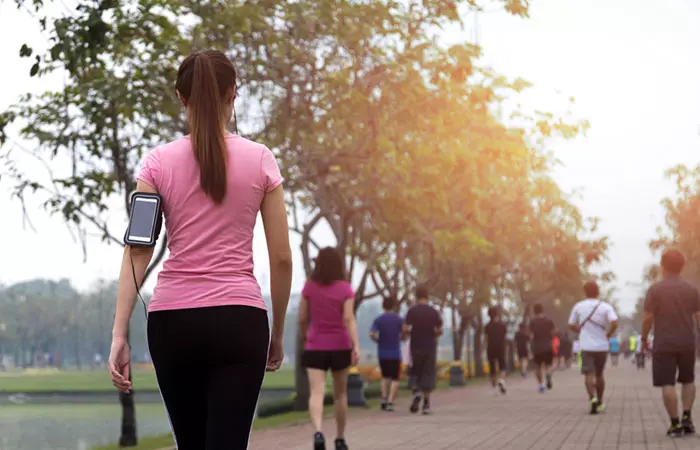
If you are thinking of making morning walks a regular part of your daily routine, here are a few tips you should keep in mind:
- Always keep your posture straight while walking. This will help you, especially if you are trying to tone your abs.
- Early morning walks are the best as your body is energized, and blood circulation is increased. You also give your body the opportunity for vitamin D absorption from the sun’s first rays. Vitamin D is best available between 11 am to 2 pm.
- If you want to lose a few extra pounds, a brisk morning walk every day is just what you need. When you walk fast, you burn more calories.
- Avoid going for a walk after eating as exercising after a meal affects the flow of digestive juices, which prevents the proper digestive system function.
- It is best not to drink too much water while taking brisk walks as it may cause harm to the respiratory system. Experts recommend keeping your body hydrated before you start your walk or 5 minutes after you are done. But if one goes for long walks, keeping a bottle of water handy is a good idea to prevent fatigue due to dehydration.
- If you are just starting out on making walks a regular exercise, start at a pace that you are comfortable with and slowly build it up as the days go by. This makes sure that you do not exert your body too much right from the start.
 Quick Tip
Quick TipOnce you have mastered the best techniques and forms, setting a regular morning walk schedule will help you stay motivated and reach your fitness goals. Scroll down to know more.
How To Integrate Morning Walks Into Your Routine
Morning walks can become a fun and sustainable strategy to enhance your physical and mental health. You can use a fitness app to remind you to walk and record your walking data. Setting a goal in the app is a good self-motivating step towards a healthier habit. To keep the vibe happy and positive, consider walking with a friend. Some people also enjoy walking alone together where you hike trails that diverge and converge at places. Another good way to keep yourself motivated is rewarding yourself with a small treat when you achieve a certain walking goal.
But why only morning walks? Well, here’s what science has to say.
Why Should You Walk In The Mornings?
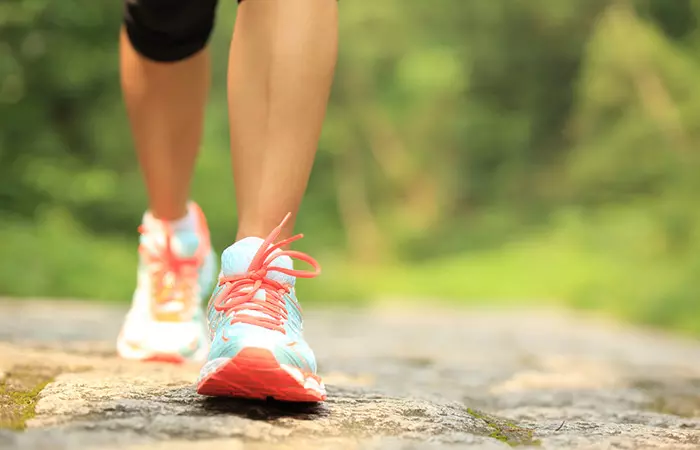
The morning hours have the least amount of pollution in the air. Fresh air has oxygen in abundance, along with other gases. When you inhale oxygen, it gets delivered to the cells, which use it to perform all functions and improve their longevity. When your body functions properly, the chances of you contracting or developing diseases diminishes.
Secondly, the morning air is rich in negative ions, and oxygen is negatively charged. The more the negative ions, the more the oxygen, and the better it is for you to breathe in that fresh air. These negative ions or oxygen in the air will help you feel rejuvenated and have a pleasant state of mind (1). In fact, when you go to a forest or near a beach or waterfall, the air is cooler and fresher because it is loaded with negative ions in these places. This is why we always feel better after coming back from vacation. Wouldn’t it be amazing if you can make it a habit of walking in the morning and inhaling as much fresh air as possible? Here’s how to go about it.
What You Need For A Morning Walk
- A pair of walking shoes
- Compression shorts or leggings
- Sports T-shirt
- Sports Bra
- Hairband
- A sipper
- Fitband, if you want to keep track of your heartbeat, steps taken, etc.
While morning walks have numerous health benefits, they may some drawbacks associated with them as well? Let us find out.
Disadvantages Of Morning Walk
Finding the time for morning walks may be challenging for busy individuals or during unfavorable weather conditions like rain and storms. Additionally, your body follows a circadian rhythm, which means its temperature rises and falls throughout the day. Research suggests it reaches its lowest temperature in the morning and then rises throughout the day (44). Due to this, you may feel muscle stiffness in the morning hours, and anecdotal evidence suggests that walking during those hours may lead to soreness and injuries. Therefore, it is recommended to warm up before walking.
Infographic: 6 Amazing Benefits Of Morning Walks
Walking is a great way to improve your physical and mental health. A morning walk for a minimum of 30 minutes has many positive effects on your body. It works as a low-impact cardio without stressing your joints, improves your mood, and energizes you for the rest of the day. Read on to know the benefits of a morning walk.
Some thing wrong with infographic shortcode. please verify shortcode syntax
The benefits of a morning walk are immense. The importance of morning walks cannot be overstated, as it can help promote overall physical and mental wellbeing. This low-intensity cardio exercise goes a long way in reducing blood sugar levels, lowering high blood pressure, improving blood circulation, minimizing the risk of heart disease and stroke, reducing body weight, and improving bone health. Besides physical benefits, a 30-minute morning walk also helps fight depression, relieve anxiety, and improve mood to enable you to start your day on a good note. Always maintain a proper posture during morning walks, and do not go for walks after a meal. Do brisk walking if your primary goal is to burn fat and lose some pounds.
Frequently Asked Questions
What time is the best for a morning walk?
The perfect time for a morning walk is usually early in the morning, around sunrise. In addition to having better air quality and cooler temperatures, this time of day may help improve mood and energy levels for the day ahead.
How does morning walk benefit your skin?
Walking or exercising in the morning helps improves circulation. This, in turn, may help your skin glow.
Does morning walk reduce belly fat?
Morning walk is a good cardio exercise, but it is not very effective for losing belly fat. Do these exercises at home to reduce belly fat.
How long should you walk in the morning?
Walk for at least 45 minutes in the morning.
Is Morning Walk good in winter?
Yes, a morning walk is good in all seasons. Of course, do not walk in the rain or during winter without wearing warm garments if the temperature is too low.
Is there a difference between morning and evening walks in terms of their benefits?
Anecdotal evidence suggests that morning walks help energize the body for the day ahead, improve mood, and support a healthy sleeping cycle. On the other hand, the benefits of evening walks include improving digestion after dinner, relieving stress, and aiding in falling asleep. However, the best time to walk depends on personal preferences.
How does a morning walk impact our digestion and metabolism?
Anecdotal evidence suggests that morning walks may stimulate bowel movements, increase metabolism, help the body burn calories more efficiently, and maintain a healthy digestive system. However, clinical studies are warranted to support this association.
Illustration: Morning Walk Health Benefits And Useful Tips
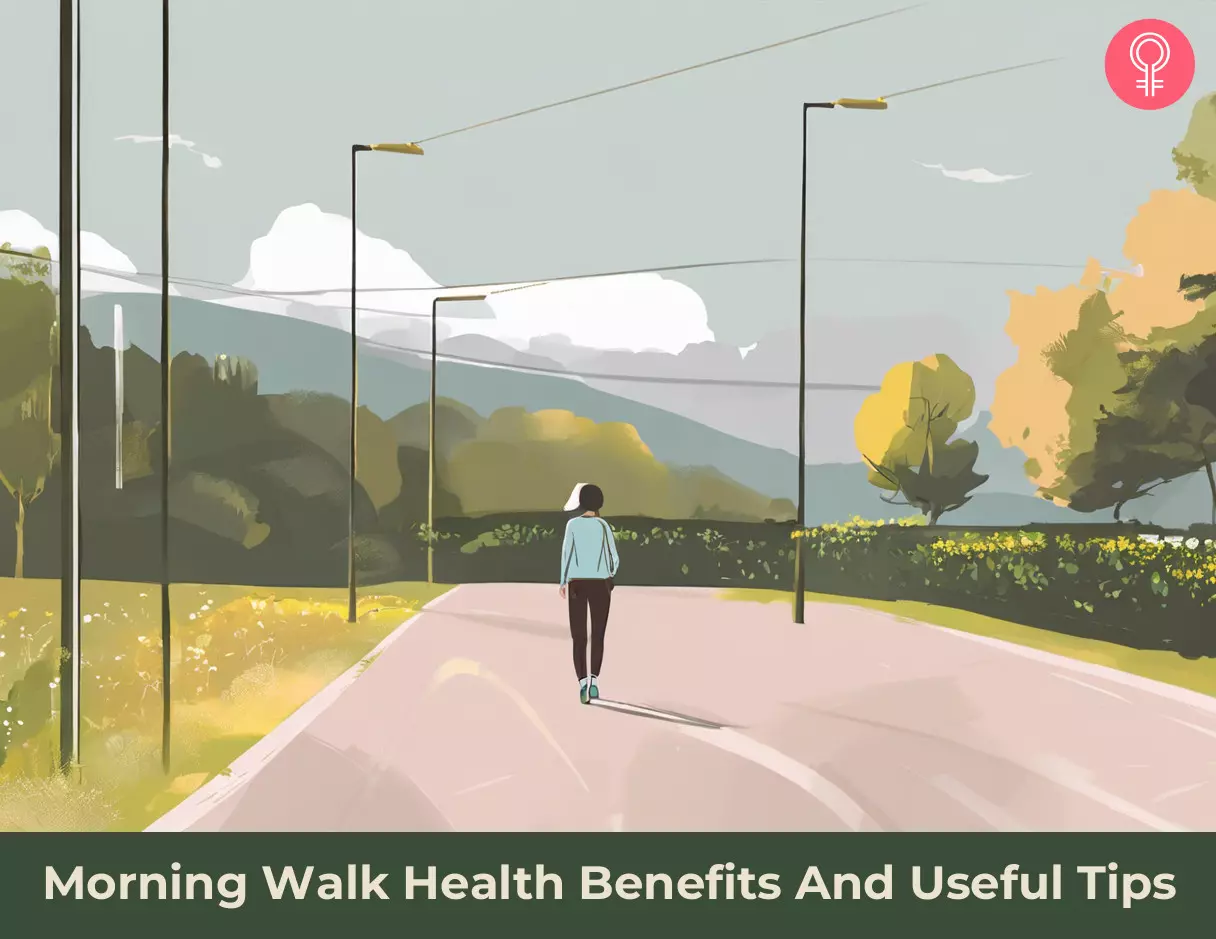
Image: Stable Diffusion/StyleCraze Design Team
Walking is a great way to stay healthy and fit and pass time. Watch this informative video to learn about the several health benefits of walking every day.
Personal Experience: Source
StyleCraze's articles are interwoven with authentic personal narratives that provide depth and resonance to our content. Below are the sources of the personal accounts referenced in this article.
i. I woke up at 4:30 every day for 30 days and went for a walk; here’s what happened.https://runningwithken.rocks/tag/fitness/
References
Articles on StyleCraze are backed by verified information from peer-reviewed and academic research papers, reputed organizations, research institutions, and medical associations to ensure accuracy and relevance. Read our editorial policy to learn more.
- The importance of walking to public health, Medicine and Science in Sports and Exercise, US National Library of Medicine, National Institutes of Health.
https://pubmed.ncbi.nlm.nih.gov/18562968/ - Walking: A Step in the Right Direction, National Institutes of Diabetes, Digestive and Kidney Diseases, National Institutes of Health.
https://www.niddk.nih.gov/health-information/weight-management?dkrd=hispt0933+/health-information/weight-management/walking-step-right-direction - Walking, American Heart Association.
https://www.heart.org/en/healthy-living/fitness/walking#.WZPjFXV948o - YOUR GUIDE TO Physical Activity and Your Heart, US National Library of Medicine, National Institutes of Health.
https://www.nhlbi.nih.gov/files/docs/public/heart/phy_active.pdf - Physical Activity for a Healthy Weight, Centers for Disease Control and Prevention.
https://www.cdc.gov/healthy-weight-growth/physical-activity/?CDC_AAref_Val=https://www.cdc.gov/healthyweight/physical_activity/index.html?s_cid=govD_dnpao_006 - Effects of a walking exercise program for obese individuals with intellectual disability staying in a residential care facility, Journal of Physical Therapy Science, US National Library of Medicine, National Institutes of Health.
https://www.ncbi.nlm.nih.gov/pmc/articles/PMC4842440/ - Walking Programs to Promote Weight Loss among Obese and Overweight Individuals: Walking Buses for Adults, Public Health, US National Library of Medicine, National Institutes of Health.
https://www.ncbi.nlm.nih.gov/pmc/articles/PMC4754299/ - Self-Care For Arthritis: Five Ways To Manage Your Symptoms
https://www.cdc.gov/arthritis/caring/index.html - Walking is related to bone density and rates of bone loss, The American Journal of Medicine, US National Library of Medicine, National Institutes of Health.
https://pubmed.ncbi.nlm.nih.gov/8304358/ - 7 things you can do to prevent a stroke, Harvard Medical School.
https://www.health.harvard.edu/womens-health/8-things-you-can-do-to-prevent-a-stroke - Brisk walking can promote functional recovery in chronic stroke patients, Journal of Rehabilitation Medicine, US National Library of Medicine, National Institutes of Health.
https://pubmed.ncbi.nlm.nih.gov/23974944/ - Reduced Diabetic, Hypertensive, and Cholesterol Medication Use with Walking, Medicine and Science in Sports and Exercise, US National Library of Medicine, National Institutes of Health.
https://www.ncbi.nlm.nih.gov/pmc/articles/PMC3640497/ - Walking vs running for hypertension, cholesterol, & diabetes risk reduction, Arteriosclerosis, Thrombosis, and Vascular Biology, US National Library of Medicine, National Institutes of Health.
https://www.ncbi.nlm.nih.gov/pmc/articles/PMC4067492/ - What You Can Do to Prevent Atherosclerosis, University of Rochester Medical Center.
https://www.urmc.rochester.edu/encyclopedia/content.aspx?ContentTypeID=1&ContentID=1583 - Walking – the first steps in cardiovascular disease prevention, Current Opinion in Cardiology, US National Library of Medicine, National Institutes of Health.
https://www.ncbi.nlm.nih.gov/pmc/articles/PMC3098122/ - Depression, World Health Organization.
https://www.who.int/news-room/fact-sheets/detail/depression - Exercise is an all-natural treatment to fight depression, Harvard Medical School.
https://www.health.harvard.edu/mind-and-mood/exercise-is-an-all-natural-treatment-to-fight-depression - Regular Walking Can Help Ease Depression, Scientific American.
https://www.scientificamerican.com/article/regular-walking-can-help-ease-depression/ - The role of physical activity in cancer prevention, treatment, recovery, and survivorship, Oncology, US National Library of Medicine, National Institutes of Health.
https://pubmed.ncbi.nlm.nih.gov/23909073/ - Physical activity and gynecologic cancer prevention, Recent results in cancer research. Fortschritte der Krebsforschung. Progrès dans les recherches sur le cancer, US National Library of Medicine, National Institutes of Health.
https://pubmed.ncbi.nlm.nih.gov/21113764/ - Reduced Risk of Incident Kidney Cancer from Walking and Running, Medicine and Science in Sports and Exercise, US National Library of Medicine, National Institutes of Health.
https://www.ncbi.nlm.nih.gov/pmc/articles/PMC4067489/ - Walking improves sleep in individuals with cancer: a meta-analysis of randomized, controlled trials, Oncology Nursing Forum, US National Library of Medicine, National Institutes of Health.
https://pubmed.ncbi.nlm.nih.gov/25806892/ - Regular exercise changes the brain to improve memory, thinking skills, Harvard Medical School.
https://www.health.harvard.edu/blog/regular-exercise-changes-brain-improve-memory-thinking-skills-201404097110 - Thinking, Walking, Talking: Integratory Motor and Cognitive Brain Function, Frontiers in Public Health, US National Library of Medicine, National Institutes of Health.
https://www.ncbi.nlm.nih.gov/pmc/articles/PMC4879139/ - The Influence of Exercise on Cognitive Abilities, Comprehensive Physiology, US National Library of Medicine, National Institutes of Health.
https://www.ncbi.nlm.nih.gov/pmc/articles/PMC3951958/ - The prevention and treatment of cognitive decline and dementia: An overview of recent research on experimental treatments, Indian Journal of Psychiatry, US National Library of Medicine, National Institutes of Health.
https://www.ncbi.nlm.nih.gov/pmc/articles/PMC2738400/ - Miscarriage, NHS.
https://www.nhs.uk/conditions/miscarriage/prevention/ - Immune response to a 30-minute walk, Medicine and Science in Sports and Exercise, US National Library of Medicine, National Institutes of Health.
https://pubmed.ncbi.nlm.nih.gov/15632669/ - Moderate-intensity exercise reduces fatigue and improves mobility in cancer survivors: a systematic review and meta-regression, Journal of Physiotherapy, US National Library of Medicine, National Institutes of Health.
https://pubmed.ncbi.nlm.nih.gov/26996098/ - Exercise for Mental Health, Primary care companion to the Journal of Clinical Psychiatry, US National Library of Medicine, National Institutes of Health.
https://www.ncbi.nlm.nih.gov/pmc/articles/PMC1470658/ - Protective Effects of Physical Exercise in Alzheimer’s Disease and Parkinson’s Disease: A Narrative Review, Journal of Clinical Neurology, US National Library of Medicine, National Institutes of Health.
https://www.ncbi.nlm.nih.gov/pmc/articles/PMC4507374/ - Physical activity reduces hippocampal atrophy in elders at genetic risk for Alzheimer’s disease, Frontiers in Aging Neuroscience, US National Library of Medicine, National Institutes of Health.
https://www.ncbi.nlm.nih.gov/pmc/articles/PMC4005962/ - 8 Tips for Healthy Lungs, Rush.
https://www.rush.edu/news/9-tips-healthy-lungs - Changes in the control of skin blood flow with exercise training: where do cutaneous vascular adaptations fit in? Experimental Physiology, US National Library of Medicine, National Institutes of Health.
https://www.ncbi.nlm.nih.gov/pmc/articles/PMC3754812/ - Walking and hypertension: greater reductions in subjects with higher baseline systolic blood pressure following six months of guided walking, PeerJ, US National Library of Medicine, National Institutes of Health.
https://www.ncbi.nlm.nih.gov/pmc/articles/PMC6119598/ - Psychological Benefits of Walking through Forest Areas, International Journal of Environmental Research and Public Health, US National Library of Medicine, National Institutes of Health.
https://pubmed.ncbi.nlm.nih.gov/30544682/ - Hair and stress: A pilot study of hair and cytokine balance alteration in healthy young women under major exam stress, PloS One, US National Library of Medicine, National Institutes of Health.
https://www.ncbi.nlm.nih.gov/pmc/articles/PMC5397031/ - Walking for prevention of cardiovascular disease in men and women: a systematic review of observational studies, Obesity Reviews, US National Library of Medicine, National Institutes of Health.
https://www.ncbi.nlm.nih.gov/pmc/articles/PMC2782938/ - Relation between usual daily walking time and metabolic syndrome, Nigerian Medical Journal, US National Library of Medicine, National Institutes of Health.
https://www.ncbi.nlm.nih.gov/pmc/articles/PMC4071659/ - Does subjective sleep quality improve by a walking intervention? A real-world study in a Japanese workplace, BMJ Open, US National Library of Medicine, National Institutes of Health.
https://pubmed.ncbi.nlm.nih.gov/27797982/ - Relationship between Physical Activity Level, Telomere Length, and Telomerase Activity, Medicine and Science in Sports and Exercise, US National Library of Medicine, National Institutes of Health.
https://www.ncbi.nlm.nih.gov/pmc/articles/PMC2581416/ - Aging, Physical Activity, and Disease Prevention, Journal of Aging Research, US National Library of Medicine, National Institutes of Health.
https://www.ncbi.nlm.nih.gov/pmc/articles/PMC3124955/ - Walking to health, Sports Medicine, US National Library of Medicine, National Institutes of Health.
https://pubmed.ncbi.nlm.nih.gov/9181668/ - Fever Incidence Is Much Lower in the Morning than the Evening: Boston and US National Triage Data, US National Library of Medicine, National Institutes of Health.
https://www.ncbi.nlm.nih.gov/pmc/articles/PMC7390559/
Read full bio of Madhu Sharma
Read full bio of Ravi Teja Tadimalla
Read full bio of Payal Karnik






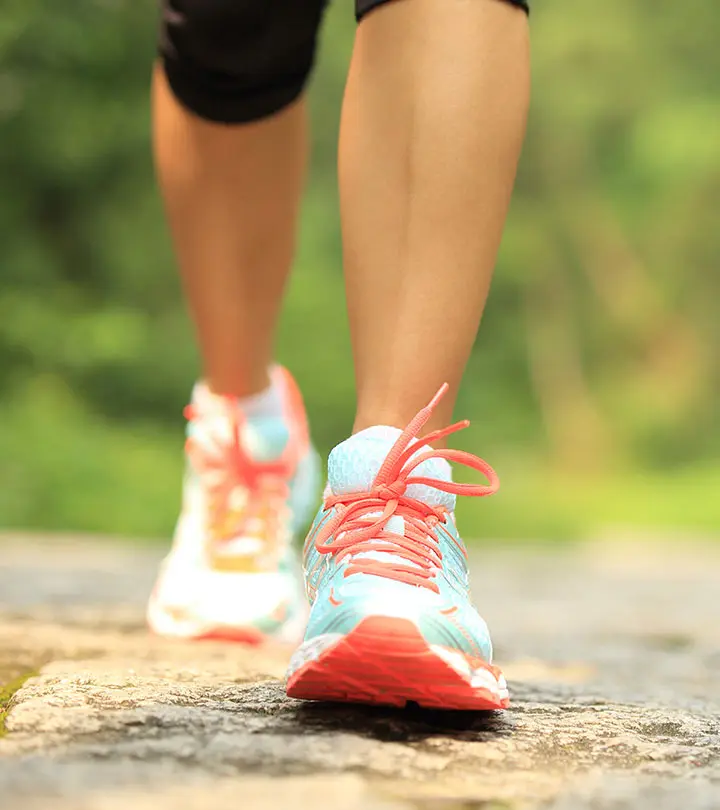
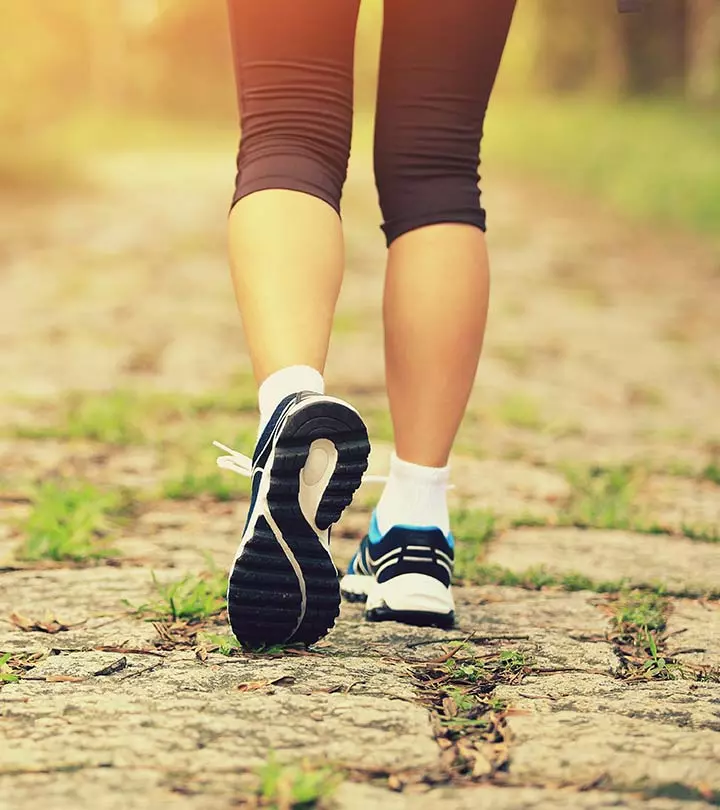


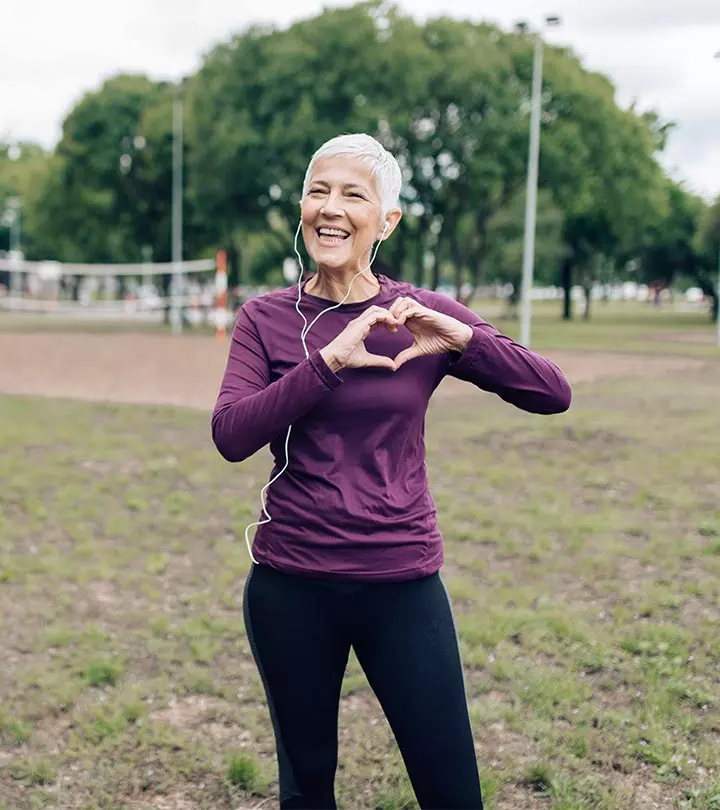


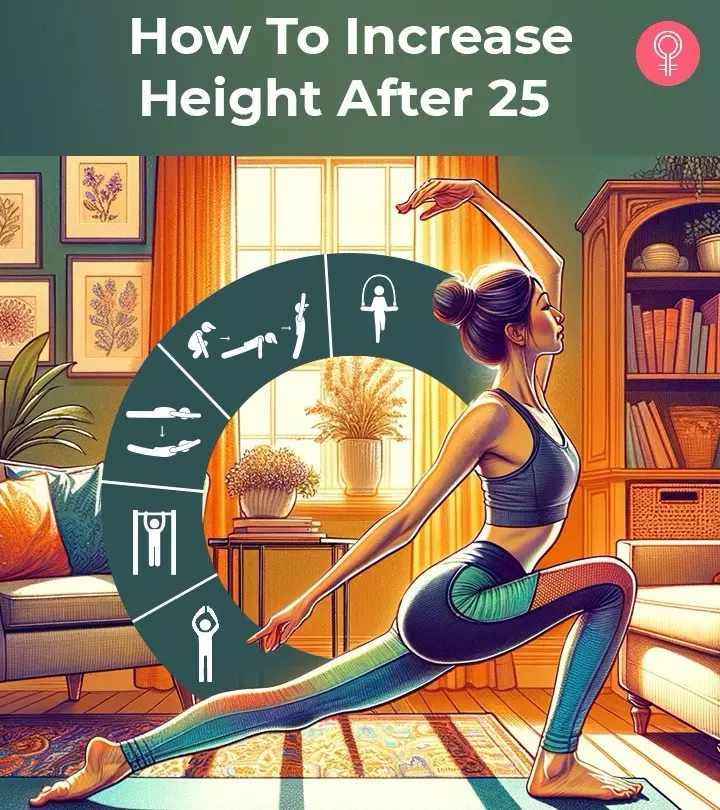
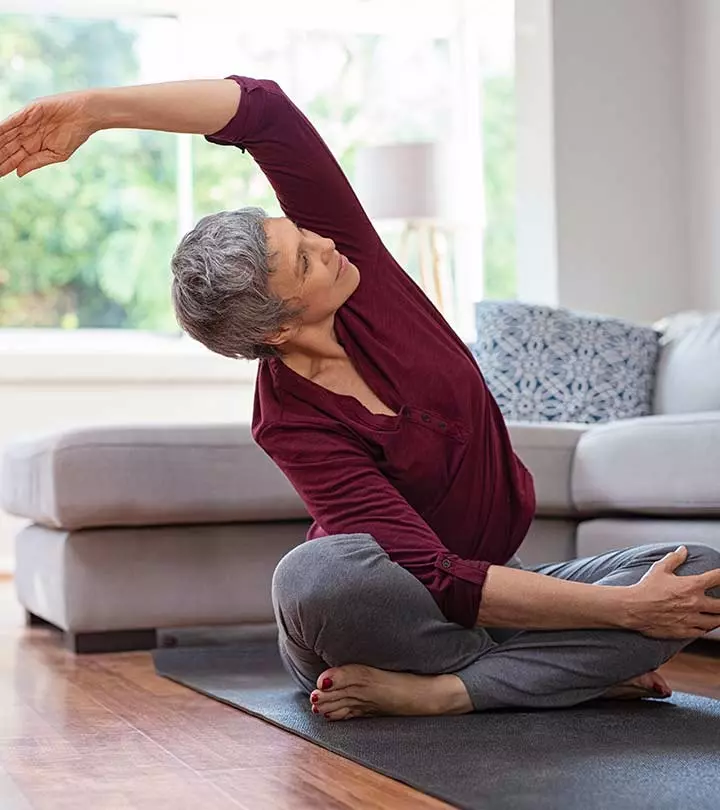




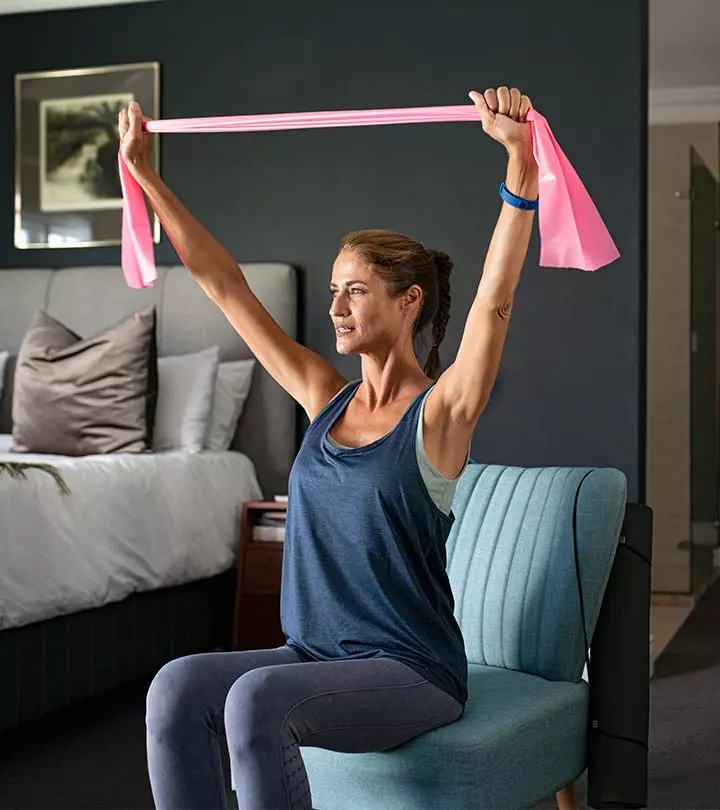

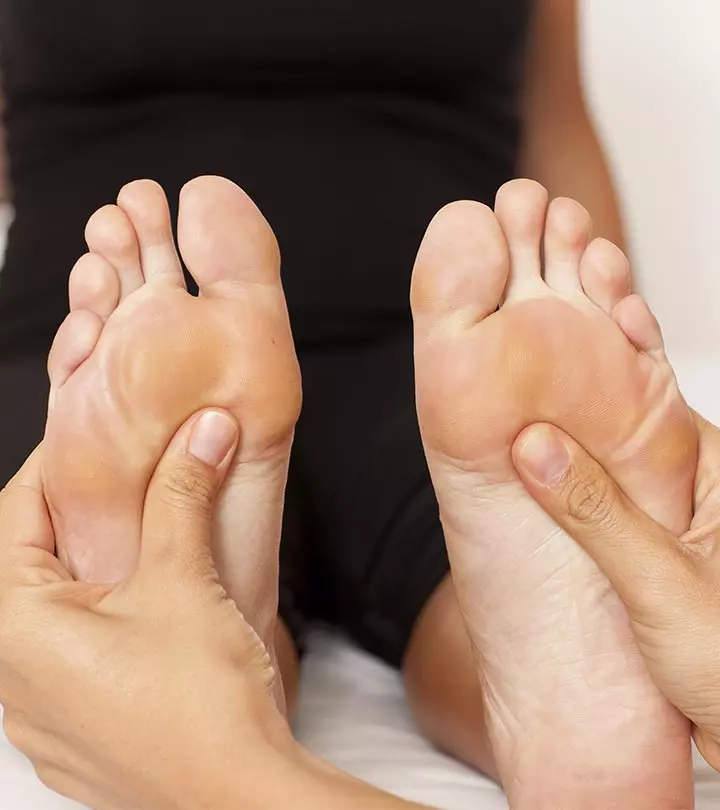

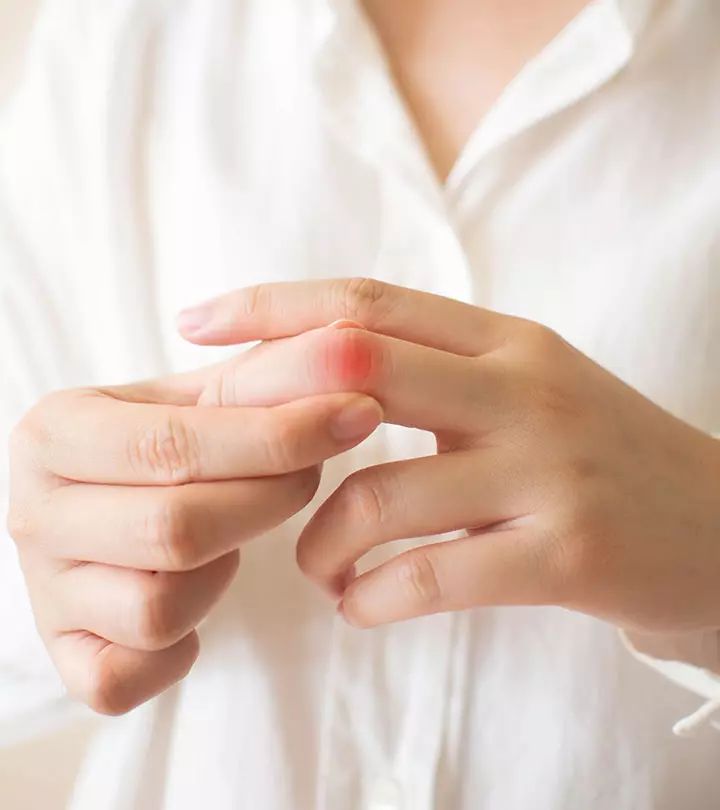

Community Experiences
Join the conversation and become a part of our empowering community! Share your stories, experiences, and insights to connect with other beauty, lifestyle, and health enthusiasts.